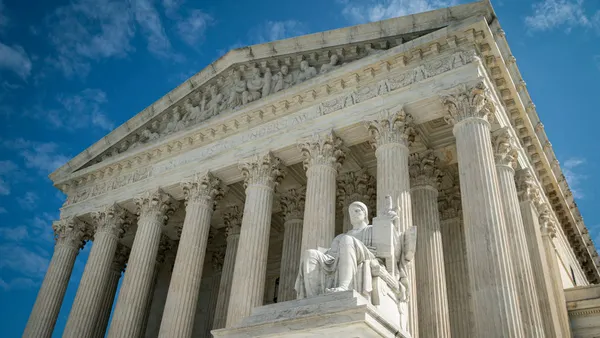Dive Brief:
- A Native American college professor has sued Hilbert College, alleging her salary was less than that of her White, male peers at the New York-based college (Zimpfer v. Hilbert College, et al., No. 21-cv-231 (W.D.N.Y., Feb. 9, 2021)).
- The professor said in her suit that she was subjected to retaliation for her complaints about the college’s allegedly discriminatory and "unwarranted" pay practices that included heightened scrutiny over her medical leave requests.
- The suit alleges both federal and state law violations and seeks compensatory and punitive damages.
Dive Insight:
To prevent such claims, experts have suggested that employers consider pay audits and take steps toward pay transparency.
Regular audits may help employers discover and remedy discriminatory pay practices, and two presenters at a 2018 National Employment Law Institute conference recommended employers take steps to ensure such audits and their results are effective, accurate and privileged in the event of litigation.
If a disparity is discovered, an employer should first determine whether those subject to the difference in pay are performing equal or substantially similar work, Liz Washko, a shareholder at Ogletree, Deakins, Nash, Smoak & Stewart, previously told HR Dive. She explained that the reference to "equal work" refers to the federal Equal Pay Act while the reference to "substantially similar" work refers to some state pay equity laws. If matters result in a court filing, aggrieved workers often sue under both state and federal pay discrimination laws, as Zimpfer illustrates.
If the work is equal or substantially similar, Washko said, the employer should determine if there is a legitimate justification for the pay disparity such as meaningful differences in education, experience, training or performance; if there is no such justification, a remedy could include an adjustment in pay.
Employers also may want to note that pay equity is expected to be a priority for the Biden administration.









